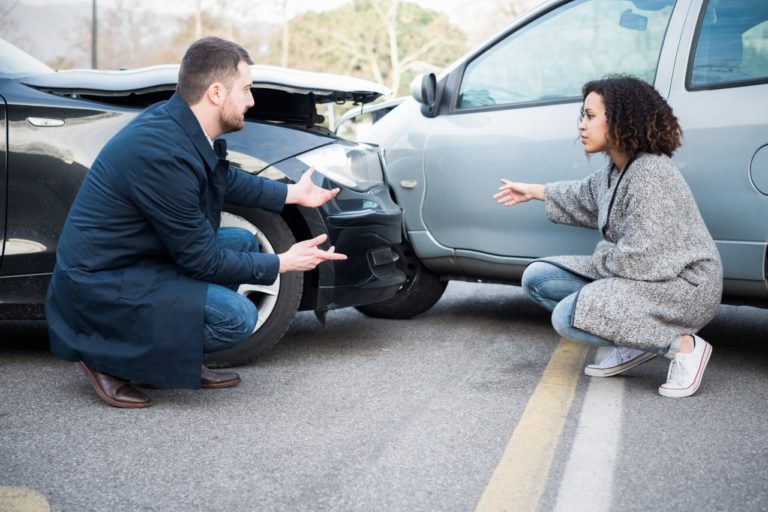Being involved in a car crash is an overwhelming experience. In the moment, it’s easy to feel a mix of shock, confusion, and worry about what to do next. While your safety and health should always come first, understanding the legal steps you need to take after an accident is crucial. Whether you’re dealing with minor damage or a more serious incident, knowing the right process can save you time, stress, and even money.
1. Prioritise Safety First
Before diving into any legal considerations, your immediate concern should be safety. Are you or anyone else involved injured? If there are injuries, call emergency services right away. Even in less severe accidents, moving to a safe location is critical—pull over to the side of the road or a nearby parking area if possible.
Once you’re safe, take a moment to breathe and collect your thoughts. Staying calm can help you handle the situation more effectively.
2. Notify the Authorities
One of the first legal steps you’ll need to take is reporting the Myrtle Beach car crash to the police. In many regions, you’re legally required to inform the authorities if the accident results in injuries, significant damage, or road hazards. Even if it seems minor, having an official police report can be invaluable for insurance claims and legal disputes later on.
When speaking to the police, stick to the facts. Avoid admitting fault or speculating about what might have caused the accident. Instead, provide clear and accurate details about what happened.
3. Exchange Information
After ensuring everyone’s safety and notifying the authorities, it’s time to exchange details with the other driver(s) involved. You’ll want to gather as much information as possible, including:
- Name and contact information – Both for the driver and any witnesses.
- Insurance details – Policy number and provider.
- Vehicle details – Licence plate number, make, model, and colour.
- Driver’s licence information – Record the number and issuing state or province.
If there are witnesses to the crash, ask for their contact information as well. They could provide valuable statements if there’s any disagreement about what happened.
4. Document the Scene
You’ve probably heard it before, but it’s worth repeating: photos and notes can make a world of difference. Use your phone to take pictures of everything—your car, the other vehicles, the road conditions, and any visible injuries. Be thorough and include:
- The positions of all vehicles involved.
- Damage to the cars (both close-up and wider shots).
- Skid marks, debris, or anything else that might be relevant.
Writing down your own account of what happened while it’s fresh in your mind is equally important. Include the time, location, and sequence of events leading up to the crash.
5. Inform Your Insurance Provider
Once you’ve left the scene and ensured everyone is safe, contact your insurance company as soon as possible. Most policies require prompt notification of an accident, even if you’re not planning to file a claim. Provide them with all the details you collected, including photos, police reports, and witness statements if applicable.
Remember to read through your policy carefully. You’ll want to understand what is covered, what your deductible is, and any deadlines you need to meet to ensure your claim is processed smoothly.
6. Consider Legal Assistance
Not every car crash will require a lawyer, but there are situations where it’s a good idea. If there are disputes over fault, significant damages, or injuries, seeking legal advice can protect your interests. A lawyer can help you:
- Understand your rights.
- Communicate with insurance companies.
- Navigate the claims process or potential legal actions.
Many lawyers offer free consultations, so it’s worth exploring if you feel uncertain about the next steps.
7. Know Your Reporting Obligations
In addition to notifying your insurer and the police, some jurisdictions require you to file an accident report with the local government or transport authority. This is often the case if the damage exceeds a certain amount or if someone was injured. Failing to report an accident could result in fines or penalties, so make sure you’re aware of the rules in your area.
Check your region’s laws or consult a legal professional if you’re unsure.
8. Monitor Your Health
This step might not sound “legal,” but it’s essential. Some injuries, like whiplash or concussions, might not show symptoms immediately. Seeking medical attention, even if you feel fine, can protect your health and provide documented evidence of any injuries related to the crash. This documentation can be crucial if you pursue compensation later on.
9. Keep a Record of Everything
After the initial steps are complete, keep all related documents organised. This might include:
- Police reports.
- Medical bills or records.
- Receipts for vehicle repairs.
- Correspondence with your insurance company or legal representatives.
Having a comprehensive file ensures that you’re prepared if any issues arise months (or even years) after the accident.
Why These Steps Matter
Car crashes, no matter how minor, can quickly turn into complex situations. Missing a critical step, like failing to document the scene or report the accident, can lead to challenges later on—whether with insurance claims or legal proceedings. By taking the right actions at the right time, you’re not just protecting yourself; you’re also making the process easier for everyone involved.
Stay Ready, Just in Case
No one plans to be in a car crash, but knowing what to do can make all the difference. Following these steps ensures that you’re handling the situation responsibly and legally. While it’s a stressful time, staying calm and methodical can help you move forward with confidence.
